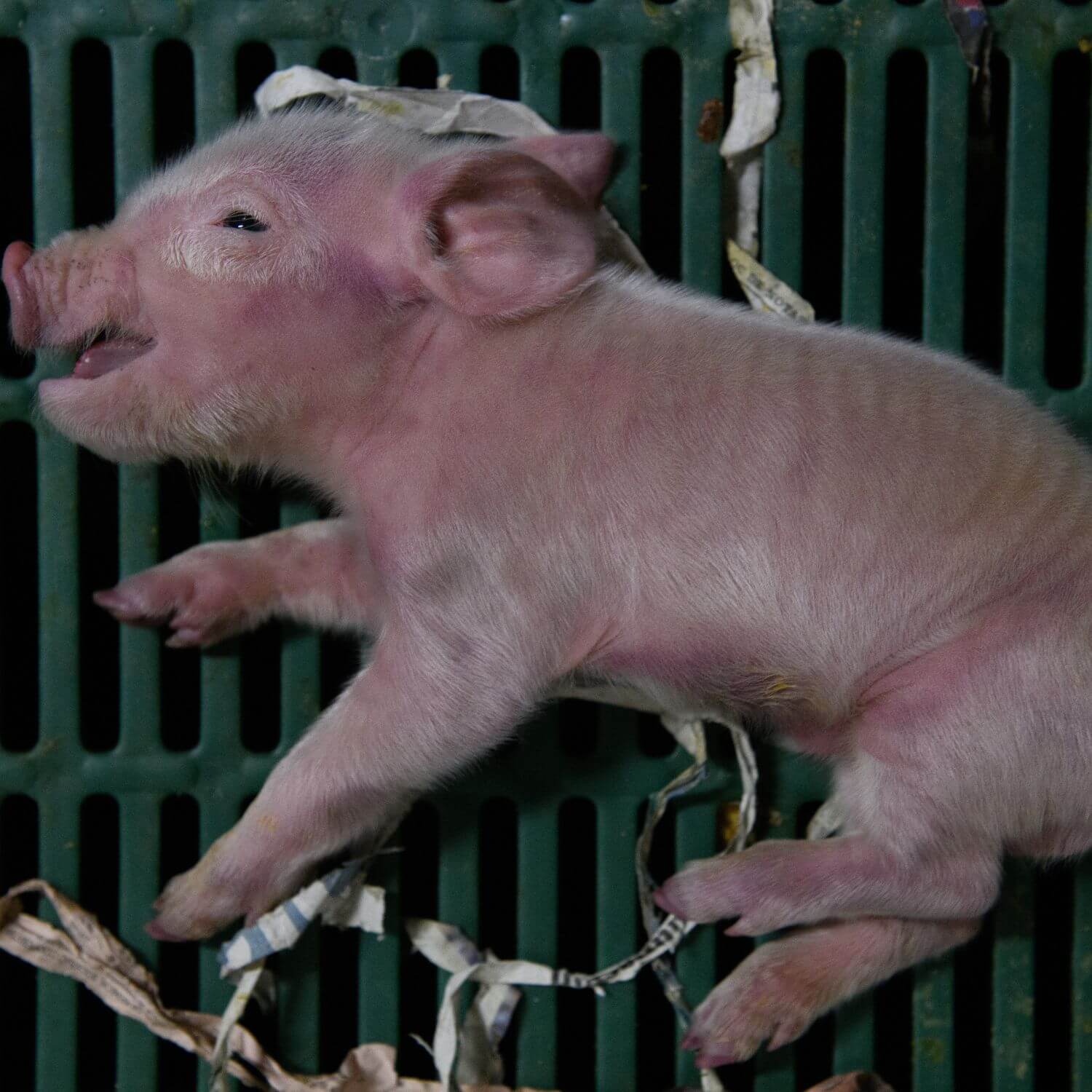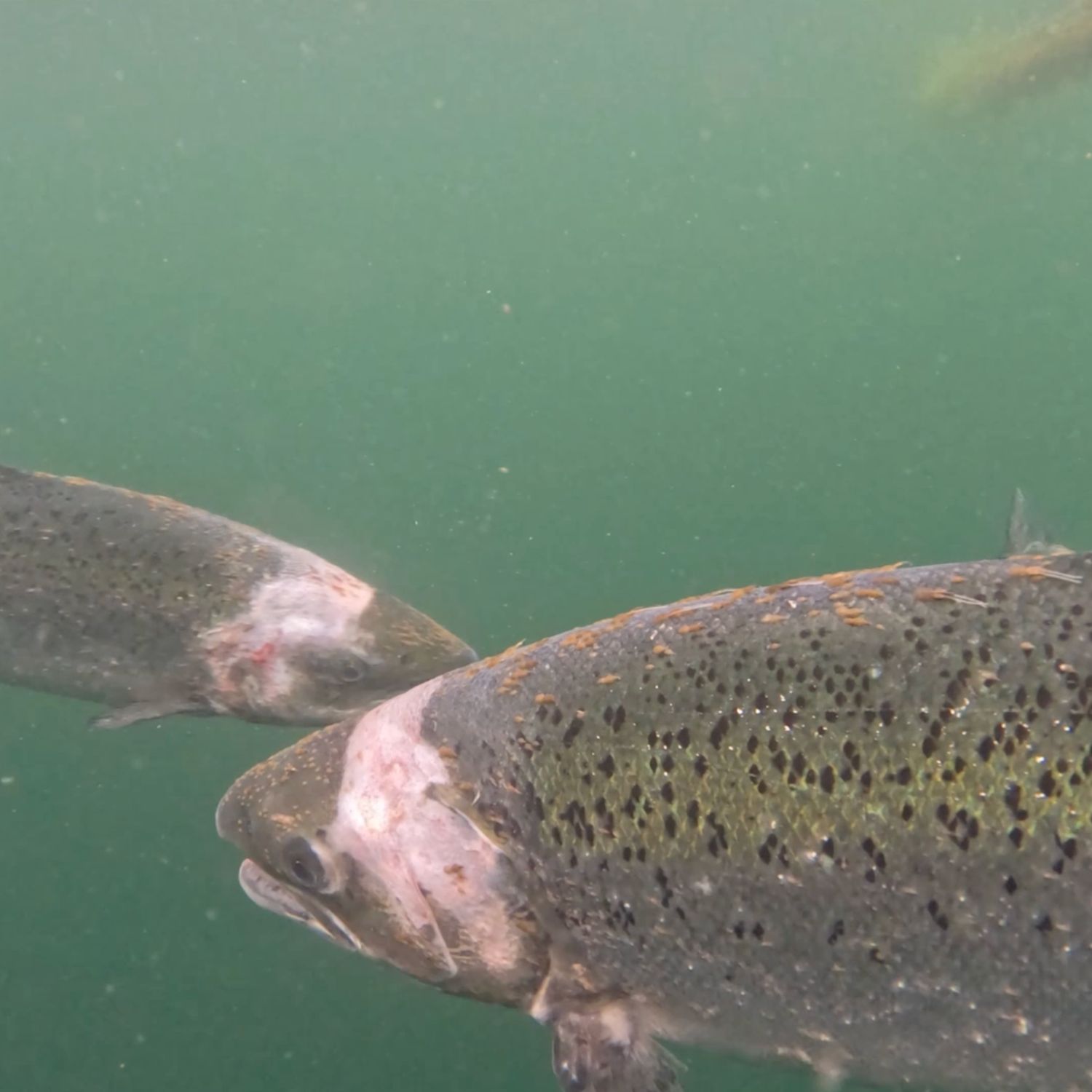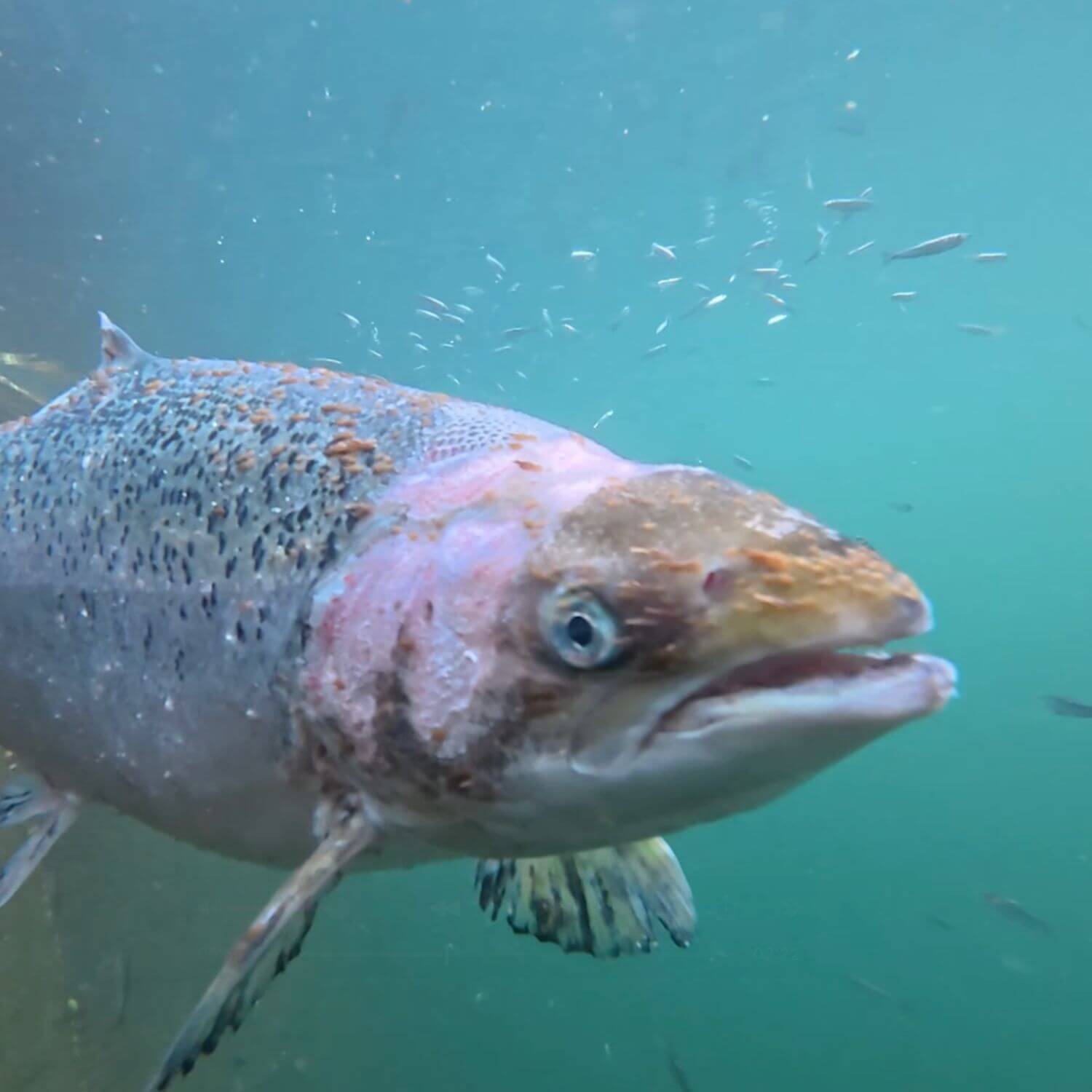Animal Equality Pushes for Progress at Parliamentary Event on Fish Slaughter
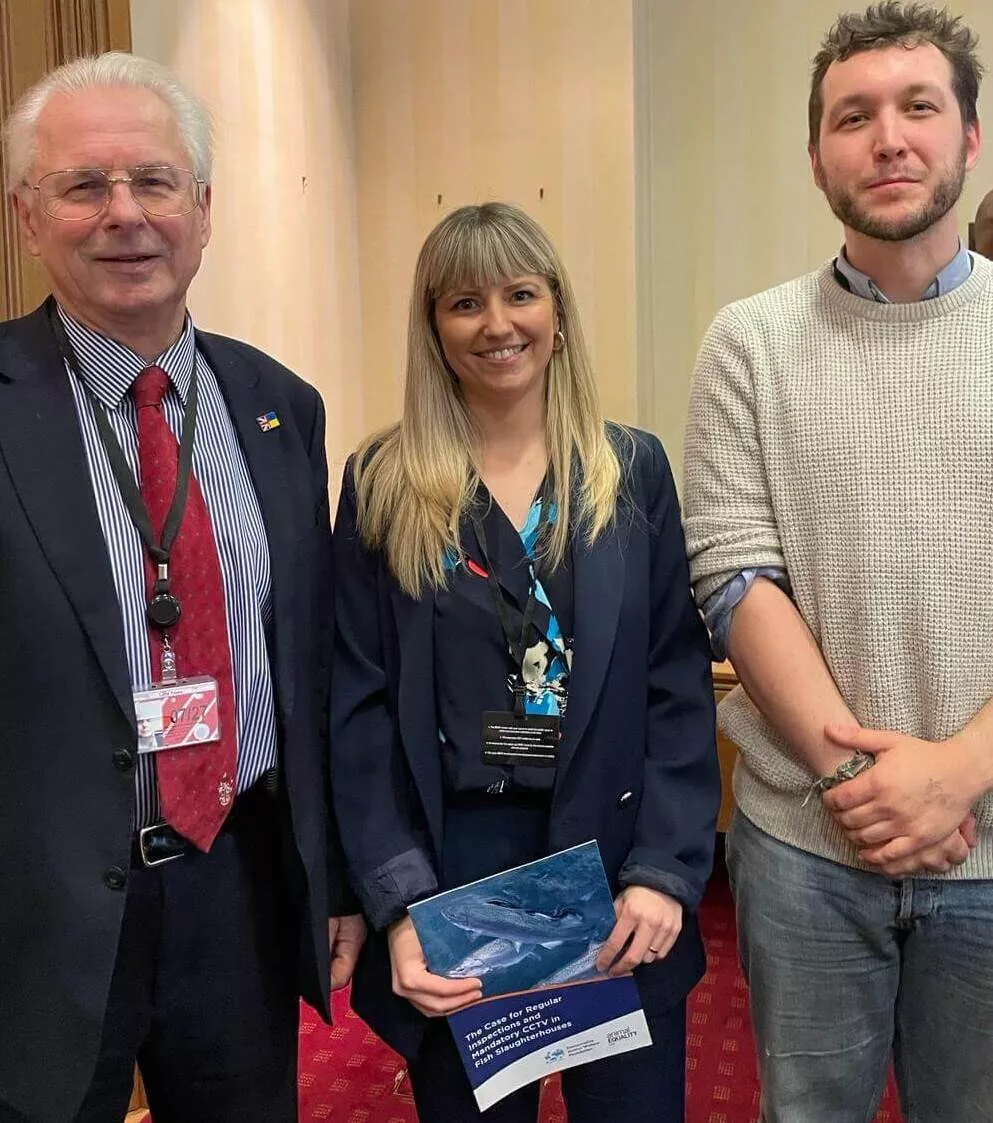
What happened in Parliament?
On Wednesday 24th January, Animal Equality took a stand for fish in the epicentre of legislative change. Invited to speak alongside representatives from leading retailers, industry experts, lawyers, and fellow animal advocates, Abigail Penny, Director of Animal Equality UK, emphasised in Parliament the critical necessity for legislation to better protect farmed fish during slaughter.
The roundtable discussion, hosted by Professor Lord Trees in the House of Lords, brought together figures from Waitrose, the British Trout Association, the RSPCA, Foods Connected and more, who all echoed this plea.
This event stems from a prior roundtable discussion in July 2022, which Animal Equality also actively participated in. Since then Animal Equality’s team has spoken with Government figures, senior politicians and even took part in a private consultation coordinated by Government-advisory body, the Animal Welfare Committee (AWC).
In the private consultation, the AWC took onboard most of Animal Equality’s key recommendations and, in turn, shared a formal Opinion with the Department for Environment, Food & Rural Affairs (DEFRA) urging the Government to put in place increased farmed fish slaughter regulations. The key recommendations were as follows:
– Mandatory stunning at slaughter;
– CCTV in fish abbatoirs;
– Increased training, oversight and inspections;
– Increased monitoring and reporting of cleaner fish mortalities; and
– Penalties for legal non-compliance.
This letter was delivered to DEFRA in February last year. Fast-forward a year and animal advocates are still waiting for the Government to confirm whether and how it will implement these recommendations.
The objectives of the Parliamentary meeting yesterday were threefold:
1. To demonstrate to key decision-makers that there is relative alignment between key stakeholders;
2. To persuade them of the genuine importance and of the urgency in enacting this legislation as soon as possible; and
3. To agree what the next steps will be for all stakeholders.
Thankfully, all three of these objectives were achieved.
All key players across the board – from the closest allies in the animal protection movement, to the industries they’re normally fighting – agreed that progress is required, ticking off the first objective.
Even Salmon Scotland, although not present in person, provided a statement in advance saying:
“We acknowledge the absence of dedicated legislation in this area and are fully committed to support the development of any such legislation as and when it is established in the future”.
Salmon Scotland
Solicitor and Co-Founder of law firm Advocates for Animals, Edie Bowles; Sean Black, Senior Scientific Officer (Aquaculture) at RSPCA; and fish expert Mark Borthwick ensured the second objective was fulfilled. Together, they took the opportunity to persuade key decision-makers of the genuine importance of this legislation, explaining why these recommendations need to be enshrined in the law rather than being left to opt-in certification schemes and industry codes of practice.
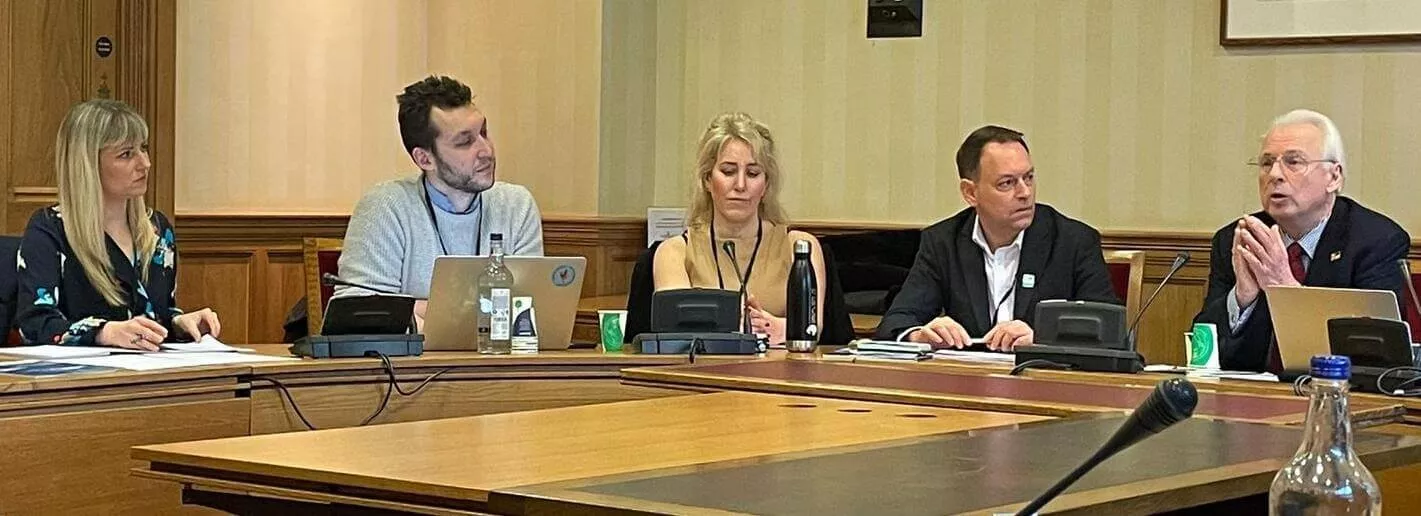
Solicitor, Edie Bowles, made the point that “the industry code is silent on how to meet the specific legal requirements and even if it did provide this guidance it would not be enforceable as it simply isn’t official”. She concluded by emphasising the importance and how it is to “bring clarity and consistency” and that it “helps avoid conflicts of interest, which is inevitable when regulation is left to billion-pound industries”.
RSPCA representative, Sean Black, acknowledged that “it shouldn’t be solely down to [them] to hold [the recommendations] up [and that] there should be [a] legislative approach”. He then cautioned that the RSPCA Assured standards “only apply to animals on farms under the certification scheme [and] if the scheme was to not exist or if the farm was to voluntarily withdraw, all of a sudden that could leave millions of animals completely unprotected”.
Meanwhile, expert Mark Borthwick made an impassioned speech stressing the urgency of the situation for the approximately 210,000 fish that are killed each day that the Government delays acting. He said:
At present, clubbing a fish’s head passes as a stunning technique […] Fish are delivered by a pipe to the slaughter machine, where they are clubbed, and their gills are cut. If this fails, a worker grabs a club, and chases them around the facility while they flap and gasp to club them to death. Imagine if we delivered cows to slaughter by a vacuum tube which throws them into a machine which they can enter backwards or upside down, which I’ve seen happen plenty of times. Their belly is clubbed instead of their head, their back is cut instead of their neck, and a worker has to grab a club and beat them to death.
[The law] simply wouldn’t allow that to happen to a cow. So why let it happen to fish?
Mark Borthwick, OOCDTP Doctoral Fellow and fish expert
Before continuing, it is important to state here that slaughterhouses are cruel and merciless places in practice, no matter which species of animal is being killed. And, despite more detailed legal provisions being in place for land animals including cows, Animal Equality’s powerful global investigations have shown over the years that cows suffer tremendously in their final moments of life too.
However, Mark is right – it’s plain as day that the treatment of fish is totally unacceptable. Whilst the fish industry claims its practices are “exemplary”, Animal Equality’s investigations reveal otherwise. The shocking footage that we release consistently shows fish being thrown violently, suffocating in buckets, entering stun-kill machines backwards, and being bludgeoned to death with batons when stunning machinery fails.
Whether deliberately or not, the stunning equipment used to render fish unconscious clearly isn’t working effectively. This means their deaths can be agonisingly drawn out.
Scientists have overwhelmingly concluded that, much like land animals, fish are thinking, feeling individuals capable of experiencing pain, pleasure and fear. That’s why it is so disturbing that the UK doesn’t have any species-specific laws in place to better protect farmed fish in their final moments of life, especially since tens of millions of fish are slaughtered in the UK every single year!
And, what limited protections exist for fish facing slaughter exist only on paper. To the best of our knowledge, there has never been a single prosecution for farmed fish-related breaches of welfare legislation. For a nation that claims to love animals, this is a disgrace that can’t go on any longer.
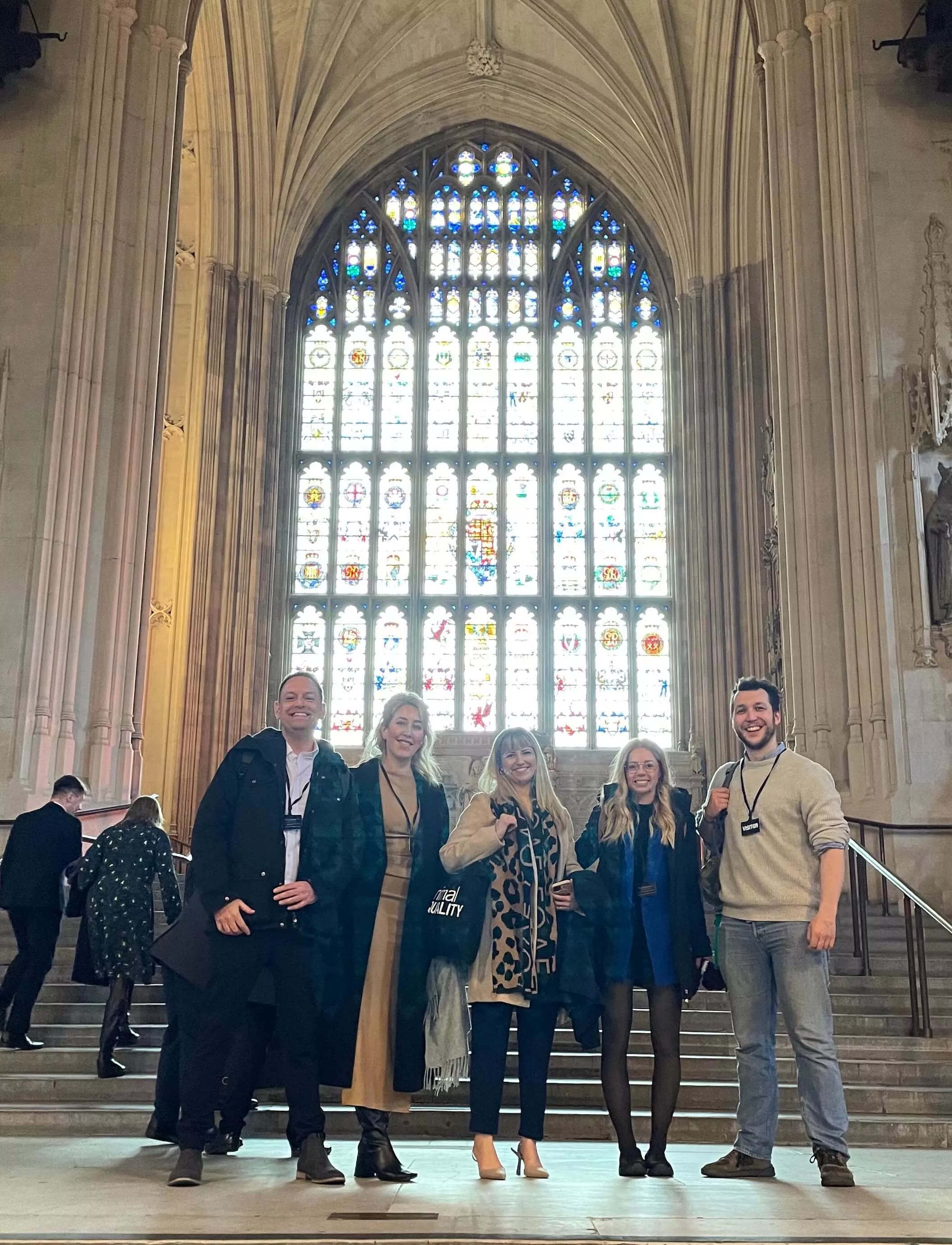
What are the next steps for fish?
The discussion closed with Lord Trees concluding “it’s clear that we need to close this legislative anomaly” and reminding the audience that “enforcement is also key”. Ticking off the final objective, the panel also initiated plans to consolidate the points of the meeting in a letter to the devolved governments, to stress that these urgent issues must not be sidelined.
At Animal Equality, there is certainly no intention of slowing down and we will be calling on DEFRA to provide a roadmap and timeline for enshrining this legislation in law. Animal Equality has also successfully secured coverage in The Grocer for the event, amplifying public awareness around the plight of farmed fish, adding to our tally of over 90 media stories that we have already generated on behalf of fish over the past year.
Take Action
What was clear in the discussion is that key decision-makers still want to hear from the public about how important this issue is to them.
Will you sign our petition today demanding stronger legal protections for fish to show them that you care?
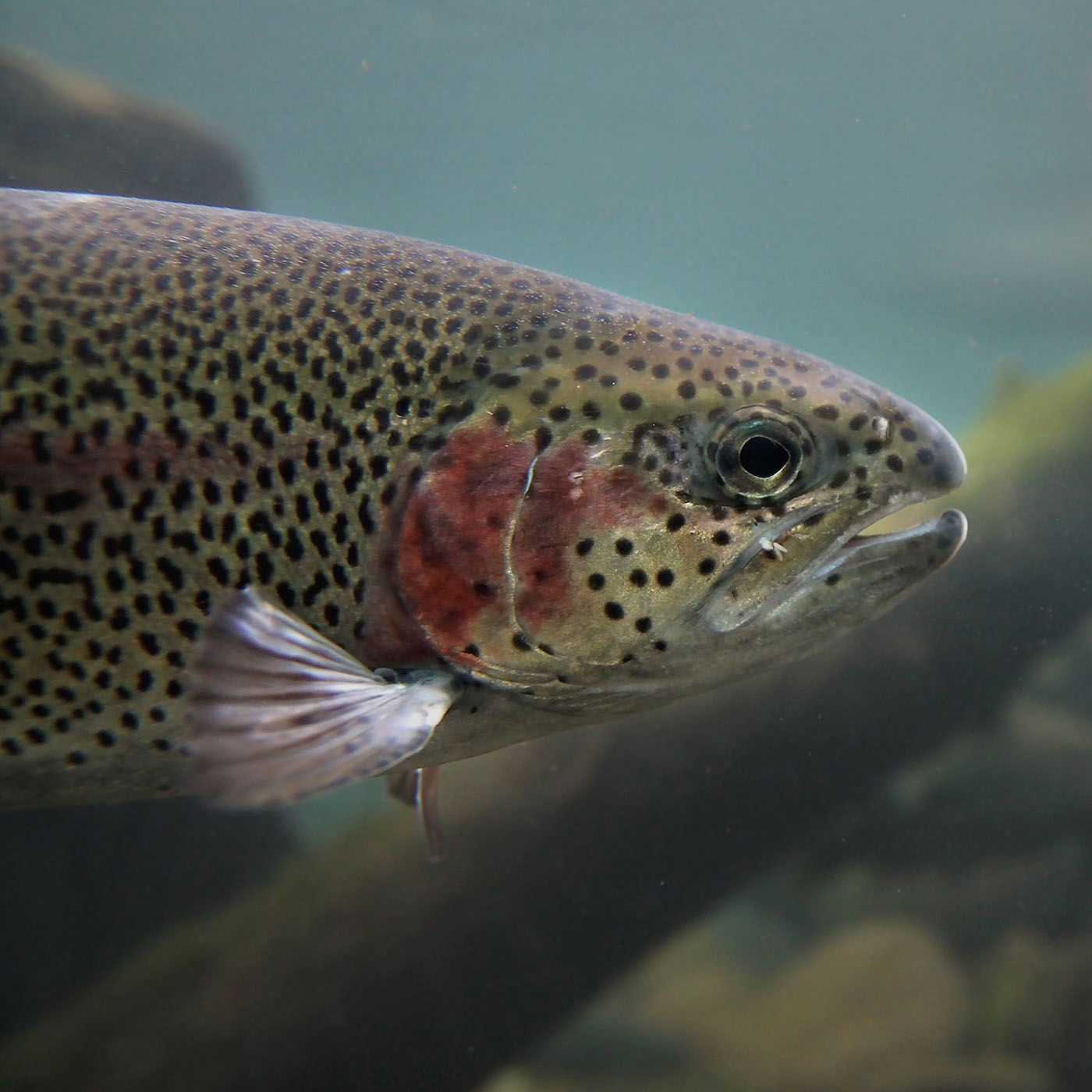
Protect Fish
Scientists confirm that fish feel pain and suffer. Protect these sensitive beings by choosing plant-based alternatives to animal food products.

